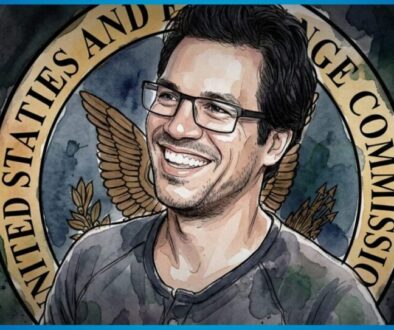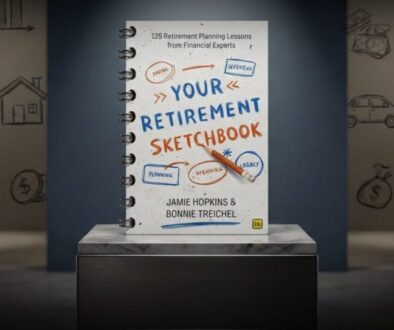Sparks fly as House members debate ESG investment regulations
House members on both sides of the aisle talked over and around one another for nearly three-and-a-half hours today as the House Financial Services Committee hosted a hearing on ESG investing.
“Well, the temperature has certainly risen in the room,” quipped Lawrence Cunningham, special counsel, Mayer Brown, late in the hearing.
Cunningham was among five witnesses who testified during an often-contentious session. Members flayed one another and witnesses with equal precision while previewing what is sure to be a divisive 2024 election issue.
Standing for environmental, social and corporate governance, ESG investment options continue to gain prominence among younger investors. ESG received a substantial boost when BlackRock, manager of $8 trillion in global assets, became an early advocate.
The Biden administration published an ESG Rule in January that drew Republicans’ ire. A group of 25 Republican attorneys general sued the DOL in January over the regulation, which gives retirement plan sponsors more freedom to consider ESG factors when selecting investments.
Congress voted in March to repeal the rule but Biden vetoed the proposal. In a story this week, Politico outlined GOP efforts to make ESG a centerpiece issue of the 2024 election.
Choices debated
Committee members spent much of the hearing debating whether ESG investments or anti-ESG efforts cause investor losses. Rep. Bill Huizenga, R-Mich., summarized the GOP opinion: “Across our country investors are being held hostage by those who don’t want to maximize retirement profits, but rather seek to push a far-left social and political agenda,” he said. “Forcing lower returns on Americans who are trying to build a secure financial future is wrong.”
Rep. Sean Casten, D-Ill., presented the Democrats’ counterview:
“There have been a bunch of state laws that have taken away the rights for investors to invest in ESG,” Casten said. “My colleagues here were trying to take away choice. Cut away all of the nonsense and they are trying to take away choice.”
Some committee members made sure their comments were on social media immediately after they were delivered.
“My concern is, there’s a fiduciary responsibility these companies have for administering these funds… if there’s an agenda that’s being forced on investors from outside, it needs to be disclosed.”
My full questioning in @FinancialCmte on #ESG investment policies pic.twitter.com/i2AbzCOIlH
— Blaine Luetkemeyer (@RepBlaine) July 12, 2023
During recent webinars, Brad Campbell, partner with Faegre Drinker Biddle & Reath and former assistant secretary of labor under President George W. Bush, called the Biden ESG rule a “neutral” regulation.
In a court brief, the Labor Department said its ESG rule will not sacrifice monetary gains. The rule “reaffirms, consistent with ERISA’s statutory text, that fiduciaries’ exclusive purpose must be to secure financial benefits for plan participants and beneficiaries, and that this purpose may never be subordinated to unrelated goals,” the new brief explained.
The DOL proposed ESG rules during the Trump administration that would require retirement fund advisors to put pecuniary interests ahead of ESG goals in investing, replete with a note from then-DOL Secretary Eugene Scalia deriding social goals in ERISA-protected plans.
The Biden administration took back the rule to realign it with ESG objectives, but ultimately kept the primary focus on monetary considerations.
SEC mandate
The committee grilled witnesses on a Securities and Exchange Commission proposal to require companies to report climate data. Introduced in March 2022, the climate disclosure rule would require certain climate-related information, ranging from greenhouse gas emissions to expected climate risks to transition plans.
The SEC recently indicated that the long-delayed rule would be likely be finalized and released in October 2023.
“I don’t believe the SEC has the authority to promulgate any part of this rule,” said Benjamin Zycher, senior fellow at the right-leaning American Enterprise Institute. “The SEC under Gary Gensler is obviously trying to become part of the climate crusade and expand its authority and its budget.”
Resistance to the climate data collection particularly infuriated Democrats who pointed to recent global temperatures, the highest in recorded history, and other natural disasters as evidence of a “crisis,” as Rep. Juan Vargas, D-Calif., put it.
“Investors want to know, what is your company doing?” Vargas said. “Is it investing in a way that is responsible? More importantly, is your company going to be around for a while and not because you are in a situation where you’re not paying attention to these risks.
“I can’t think of a worse time to be trying to pass bills against environmental issues than right now, when the headlines are screaming about these climate disasters.”
Senior Editor John Hilton covered business and other beats in more than 20 years of daily journalism. John may be reached at john.hilton@innfeedback.com. Follow him on Twitter @INNJohnH.
© Entire contents copyright 2023 by InsuranceNewsNet.com Inc. All rights reserved. No part of this article may be reprinted without the expressed written consent from InsuranceNewsNet.com.
The post Sparks fly as House members debate ESG investment regulations appeared first on Insurance News | InsuranceNewsNet.



